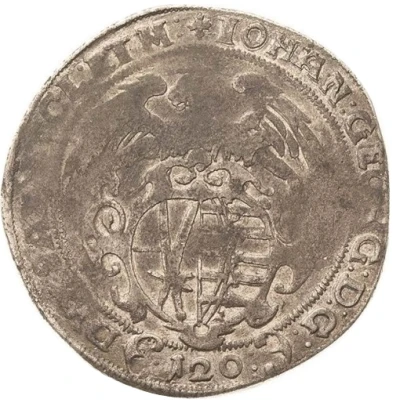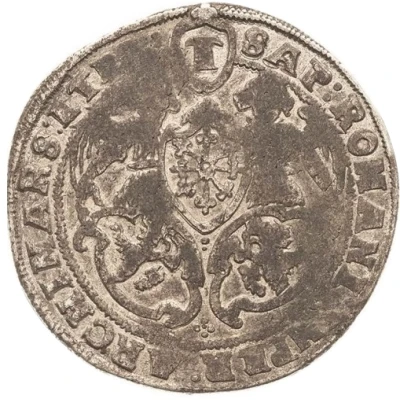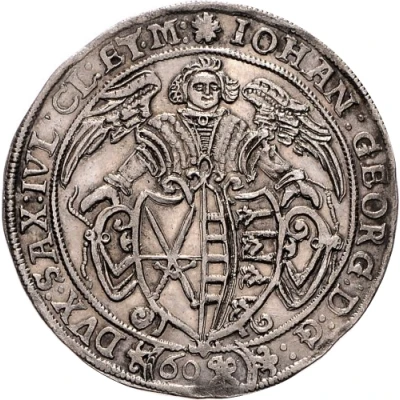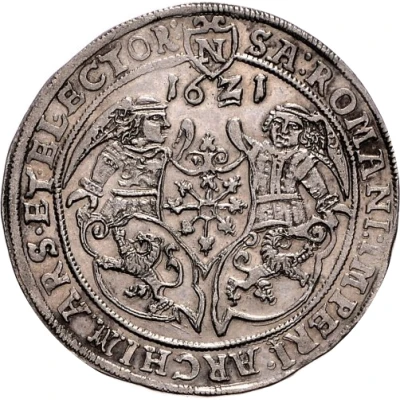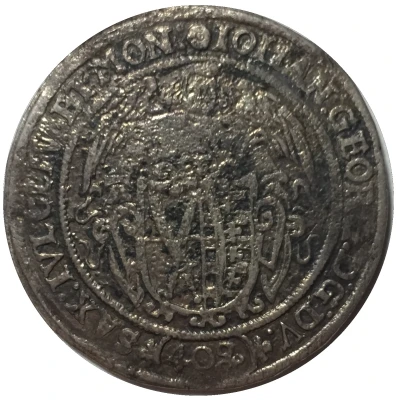
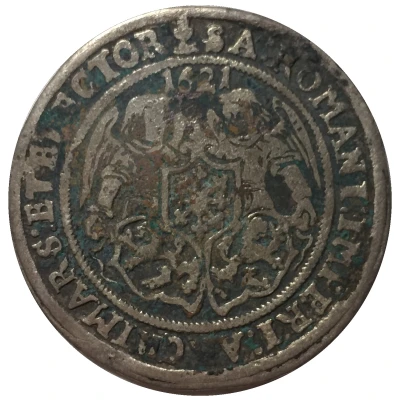

© Kettti
40 Groschen Kipper Thaler - John George I
1621 year| Silver | 17.19 g | 42 mm |
| Issuer | Electorate of Saxony (Albertinian Line) (German States) |
|---|---|
| Prince elector | John George I (Hans Georg I) (1591-1656) |
| Type | Standard circulation coin |
| Year | 1621 |
| Value | 40 Groschen (1) |
| Currency | Thaler (1493-1805) |
| Composition | Silver |
| Weight | 17.19 g |
| Diameter | 42 mm |
| Thickness | 1.5 mm |
| Shape | Round |
| Orientation | Medal alignment ↑↑ |
| Demonetized | Yes |
| Updated | 2024-10-05 |
| Numista | N#175827 |
|---|---|
| Rarity index | 97% |
Reverse
Two angels behind three coat of arms with ribbons, year above,
inscription around, mint mark (acorn with branch)
Script: Latin
Lettering:
SA:ROMANI:IMPERI:ARCHIMARS:ET ELECTOR
1621
Comment
Kippertaler are interim coins with temporary validity which were minted between 1620 and 1623. The inferiorly applied so-called Kippertaler did not correspond to the Augsburg Reich Münzordnung of the Holy Roman Empire of 19 August 1559. The mint owners melted down the good money and forged falsified, low-cost money. Since on the Kippertalern the value is indicated in Groschen or Kreuzer, they could not be objected, because they were thus no Taler or their parts, which had to correspond to the Reichsmünzordnung, but Groschen or Kreuzer, thus 'Landmünzen' (Coins of state), which only were valid in the own country and were not regulated under the Reichsgesetz.Weight, diameter and silver content varies.
Interesting fact
One interesting fact about the 40 Groschen (Kipper Thaler) coin from the Electorate of Saxony (Albertinian Line) is that it was issued during a time of economic turmoil in the early 17th century. The coin was introduced as a replacement for the previously used "Kippergroschen," which had become devalued due to excessive minting. The new coin was made of silver and had a higher denomination, 40 Groschen, to reflect its higher value. Despite its introduction during a time of economic uncertainty, the 40 Groschen coin remained in circulation for over a century and is now a sought-after collector's item among numismatists.
